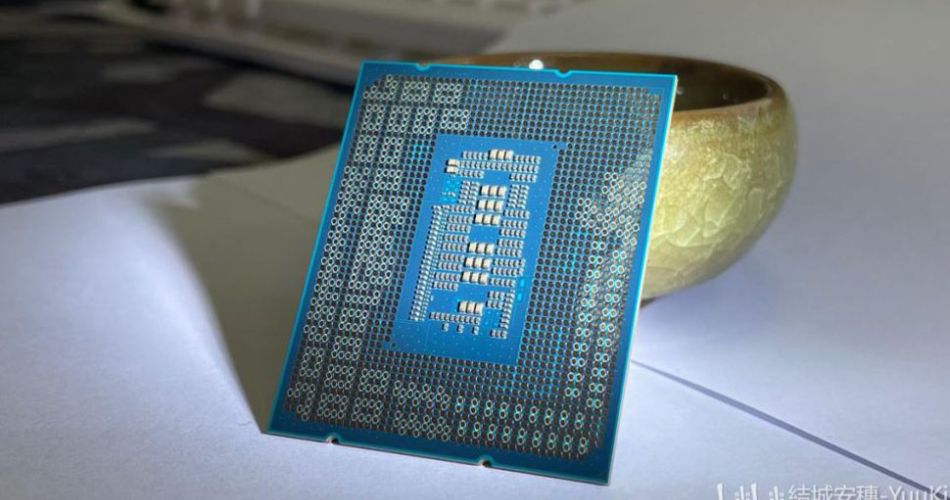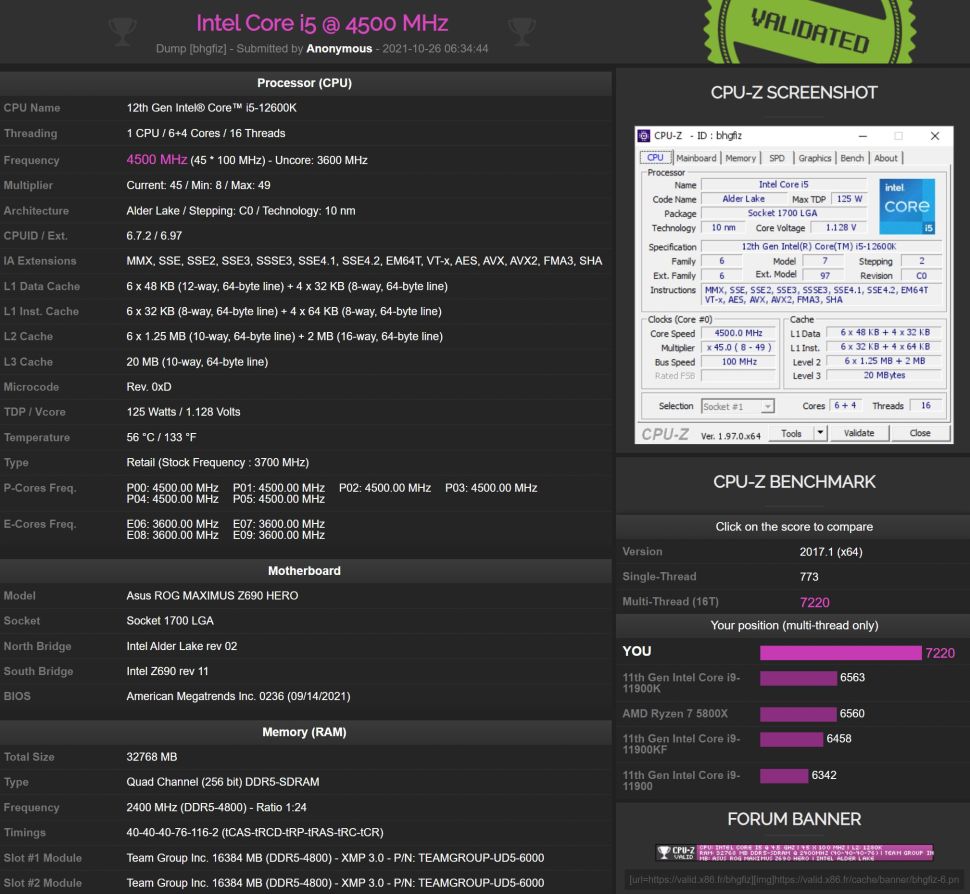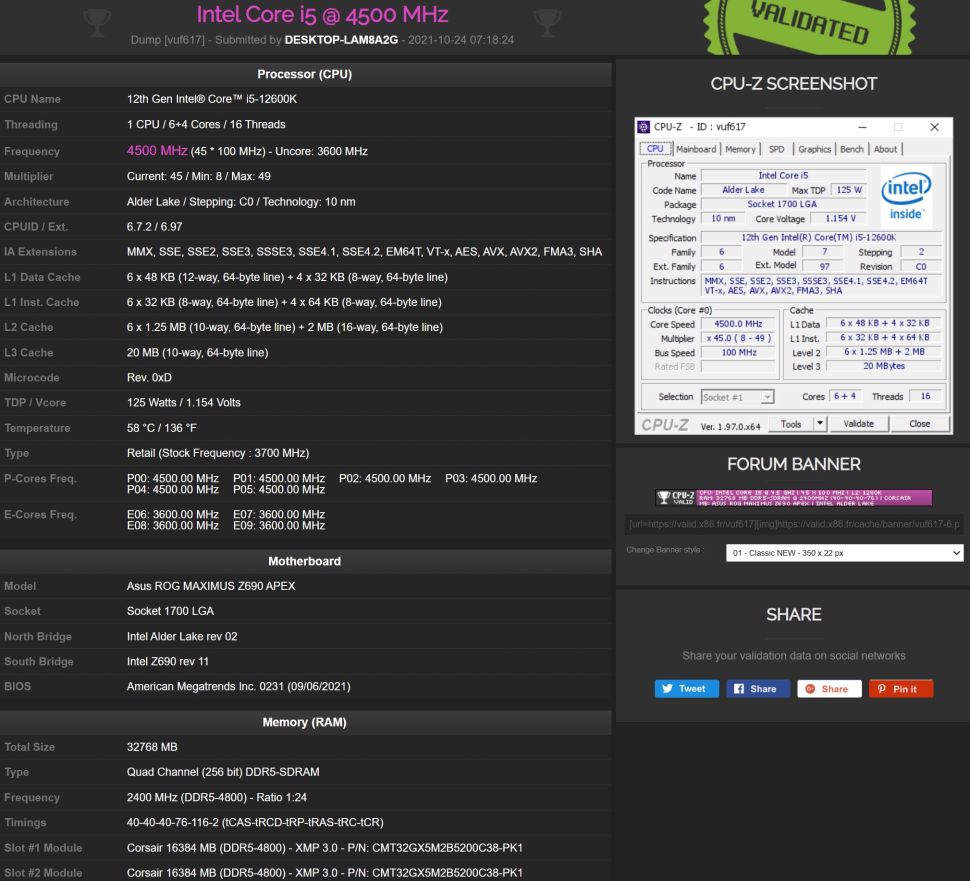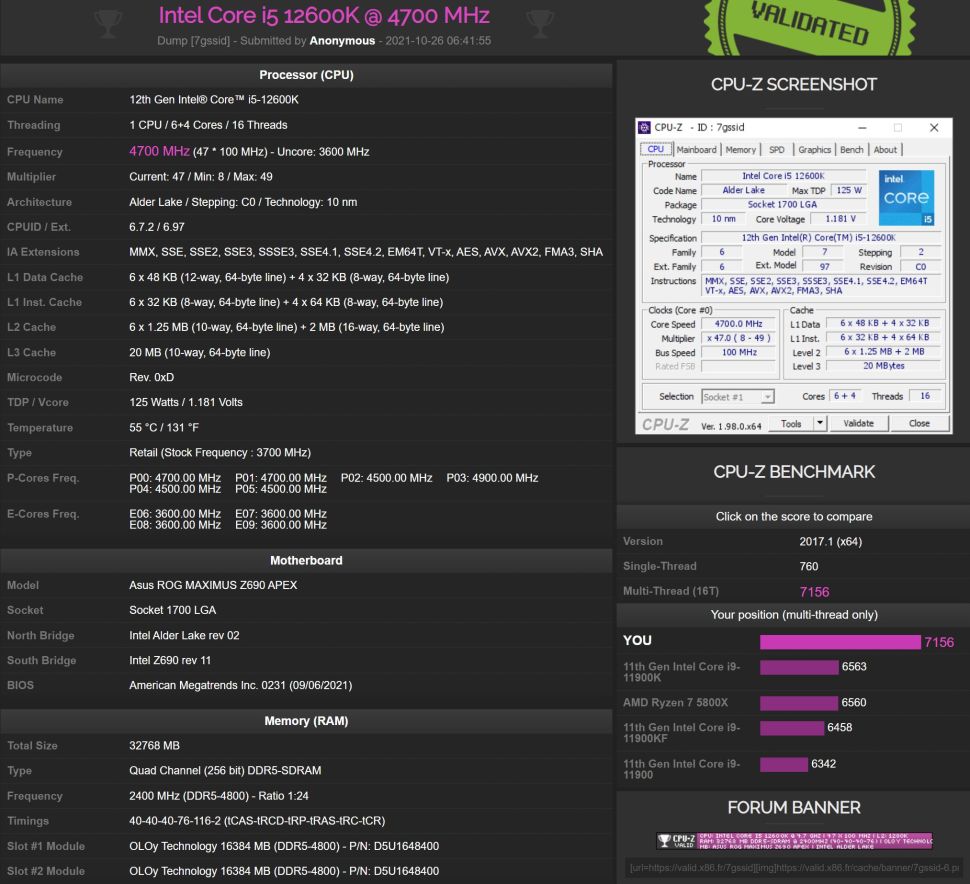Intel Core i5-12600K Test Suggests 50% More Threaded Performance Than 11600K

As we approach Alder Lake’s rumored release on November 4th, performance benchmarks have become increasingly common, pitting Intel’s upcoming chip against its own previous generation chips and, of course, AMD’s current lineup. If CPU-Z validated benchmark scores are anything to go by, Intel might deliver more than a typical generational update with Alder Lake. For example, a recent leaked benchmark shows that the company’s upcoming Core i5-12600K is 50% faster than the previous-gen Core i5-11600K in multi-threaded scenarios.
Three separate validations have been submitted to CPU-Z’s database, painting a relatively consistent performance expectation for Intel’s historically mid-tier CPU. Two different motherboards were used (one ASUS ROG Maximus Z690 Apex and one ASUS ROG Maximus Z690 Hero), and three different DRAM subsystems (OLOy, Corsair, and TeamGroup), all running at 4800 MT/s. Clocks for the Core i5-12600K are currently rumored at a 2.8 GHz base and 3.7 GHz Boost (6 Performance cores with HyperThreading + 4 Efficiency cores, for a total of 16 available threads), with maximum frequency for single-core Boost at 4.9 GHz.
The Alder Lake Core i5-12600K scored from 760 to 773 points in single-thread (ST) tests and 7,156 to 7,220 points in multi-thread (MT) workloads. Compared to Intel’s last generation, the Rocket Lake Core i5-11600K achieves a relatively paltry ~633 ST points (the Core i5-12600K scores 20% higher) and ~4731 MT points (52% advantage for the Core i5-12600K).
Those scores also compare extremely favorably with AMD’s current product stack; in terms of threads, the Ryzen 7 5800X (8 cores, 16 threads, $449 MSRP) is the closest competitor offering. However, it’s seemingly outclassed by the heterogeneous core design in Alder Lake’s 12600K – the Ryzen 7 5800X scores around 640 ST points (the i5-12600K thus provides ~19% higher ST performance) and 6,560 MT points (a 9% performance advantage).
Of course, these results don’t paint an overall performance picture for Intel’s upcoming Alder Lake family. And yet, we all know that market success stands more on the price/performance ratio of a given part than on its theoretical performance. To that effect, one has to consider that Intel’s Core i5-11600K launched to a $262 MSRP. Intel’s pricing strategy for Alder Lake and its impressive performance suggestions does remain to be seen; there is an immense price gap between the 11600K’s $262 MSRP compared to AMD’s Ryzen 7 5800X at $449. AMD does have the advantage of an earlier time to market on its Zen 3 designs, which means that the company can juggle around pricing in order to better compete with Intel’s upcoming family.



